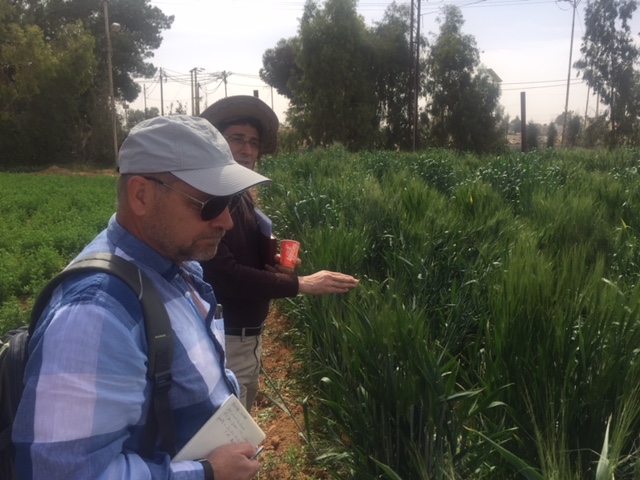
Establishment of a global knowledge base of desert rhizosphere microbes and their use in re-establishing sustainable agricultural systems in arid lands.
The Darwin21 project aims to revisit the planet in the 21st century to establish a global knowledge base of desert rhizosphere microbes for re-establishing sustainable agricultural systems in arid lands.
The identification of the rhizosphere microbes that are associated with pioneer plants that live under extreme heat, drought and/or salt conditions could lead to new metabolic pathways and compounds with applications in medicine, chemical engineering and synthetic biology and could result in new strategies to replant desert areas to transform them into sustainable agricultural systems.
To feed the world, food production has to be increased by about 50 % until the year 2050. Although most developed countries can reach these aims by technological advances, many countries in dry and hot zones already chronically lack the production of enough food for their own population and depend on imports and foreign aid. Considering that harvest losses by drought, salt, heat and biotic stresses amounts to approx. 80 % of total productivity, improvement of stress tolerance is the main aim in crop improvement in the world. Since plants have colonized land, they have evolved mechanisms to respond to changing environmental conditions and settle in extreme habitats.
Although many plants lack the adaptive capability to adapt to stress conditions, the ability of a variety of plants to adapt to stress conditions appears to depend on the association with rhizosphere microbes, raising a number of questions: Can all plants improve stress tolerance when associated with their appropriate rhizosphere microbial partners? What distinguishes the rhizosphere microbes and plants that are adapted to extreme environmental conditions from those living in temperature zones? Did we miss to identify the right rhizosphere partners for a given plant or crop species?
Using latest genomics, transcriptomics and metabolomics methods, a freely accessible molecular database on rhizosphere microbial genomes and their gene functions will be created. By bioinformatic and functional analysis of the isolated microbes, new metabolic pathways will be identified and analysed for their use in medicine, chemical and synthetic engineering.
By functional analysis on the desert and crop host plants, the potential of the rhizosphere microbes to enhance plant stress tolerance will be established. This knowledge should lay the ground for many applications and last not least the ability to re-establish agriculture in arid regions and thereby help to secure future world food production.
